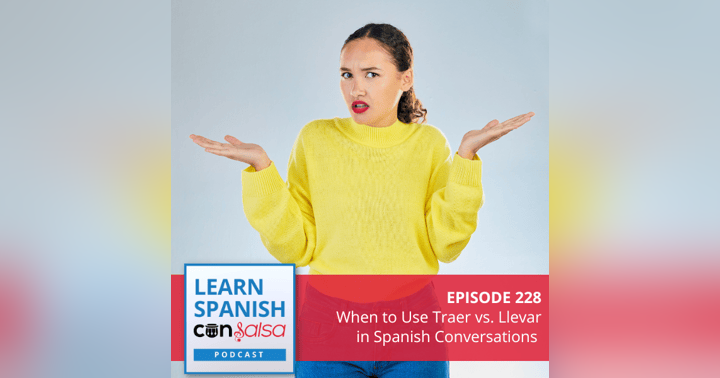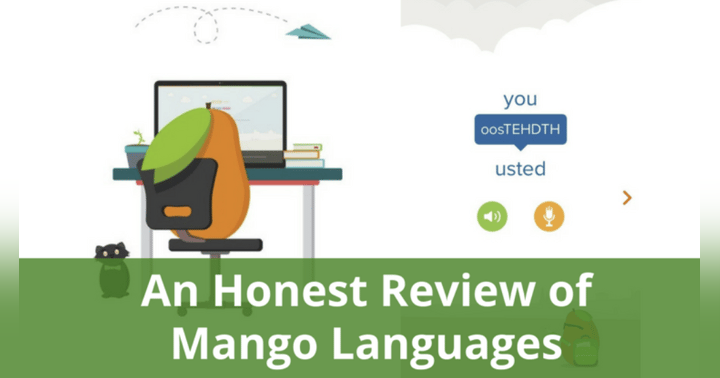Why You Should Never Talk to Bilingual Spanish Speakers

Whether you’ve just started learning Spanish or have been at it for some time, getting Spanish conversation practice is tremendously helpful in making progress. Experience using the language will improve your ability to hold a conversation confidently.
But to do this, you’ll need someone to talk to.
There are many opinions on the best way to practice speaking Spanish. Some say you should talk exclusively to native speakers. Others say you can practice with other Spanish learners or even your pet, as long as you practice speaking.
While you can make an argument for both approaches, I have one rule that will save you a lot of time and frustration.
Never practice conversation with a bilingual language partner.
Initially it seems like a good idea to speak to a bilingual friend or language partner. Someone who already speaks both English and Spanish is a good ally to provide moral support, advice, accountability, and encouragement.
But this should NOT be your go-to person for Spanish conversation practice.
These are some of the pitfalls of speaking Spanish with bilingual language partners:
1) They will switch to English
Your Spanish-speaking friends and language partners may switch to speaking to you in English out of convenience or impatience.
If you’re a beginner or even intermediate learner that struggles to keep up with the normal pace of conversation, it will be easy for your language partner to revert to English to explain something to you.
This may be helpful for a little while if you are an absolute beginner, but if you want to really get better at speaking Spanish then this will become frustrating and counterproductive.
It’s not always intentional, and usually happens when you get stuck in a conversation.
It just happens naturally because it saves both of you time, but this doesn’t help you improve your Spanish.
2) They will make you comfortable speaking English or Spanglish
When talking to someone who is bilingual, when you can’t think of a word you will feel comfortable just saying the word you don’t know in English.
You can skate by with this approach because you know they will understand you.
As you may have guessed, this does NOT improve your Spanish conversation skills.
While this is fine when you’re an absolute beginner and need this crutch just to get through a conversation, it won’t fly when you’re in a real life situation where you don’t have the words to say what you want to say.
Imagine you’re in a small town in Colombia talking to someone that speakers ZERO English. In that moment when you get stuck, you’ll be forced to explain yourself using only Spanish.
This requires some creativity, resourcefulness, and thinking on your feet. This takes practice.
In the beginning, you’ll probably find yourself using lots of hand gestures and other non-verbals. Eventually, though, you’ll develop the skill of using the Spanish you know to get your point across or get the information you need.
This is also a good way to acquire new vocabulary. The association with a social interaction where you forgot or didn’t know a word makes it stand out in your mind more, thus you’re more likely to remember it later.
It also increases your motivation to look up words you don’t know since you know you’ll need to use them.
In this end, this painful exercise will get easier and make you a better conversationalist.
3) Social dynamics may get in the way
In social interactions, you want the conversation to flow naturally and be relaxed.
The point is to share thoughts, ideas, and emotions–not to win a grammar contest or show off your vocabulary (unless your friends are snobs, in which case I’d recommend finding different people to hang out with).
But if you get lost too often, it makes conversation painfully difficult.
It’s unnatural for your friends to slow down and start speaking classroom, slow Spanish to give you time to catch up. More than likely, they’ll just speak to you in English to make things easier for you and to move the conversation along.
Sticking to speaking strictly Spanish with bilingual friends may be a challenge, especially if there’s more than one person in the conversation.
If you’re among a group of people, it’s natural to revert to speaking the common language among the group out of respect so that everyone understands the conversation. That language is often English.
So who IS the ideal language partner?
To get the most out your speaking practice, chat with Spanish speakers who know very little, if any, English.
The key is to find someone who is comfortable speaking Spanish and isn’t very comfortable speaking English.
We tend to fall back to our comfort zones eventually, so finding someone who is more comfortable speaking Spanish than English will be more helpful than someone fluent in both English and Spanish.
That generally means their Spanish level will be significantly higher than their English level. This will make relying on the ability to switch back to English less likely, if not impossible.
It may be a little difficult at first, but eventually you will start to understand more and more.
The person doesn’t have to necessarily be a native Spanish speaker. Although talking to native speakers will help you get used to proper pronunciation and intonation in Spanish, a language partner that speaks Spanish as a foreign language is also an acceptable option.
If you’re speaking to a Spanish speaker that doesn’t speak any English, you can use the line: “habla despacio, por favor” (speak slowly, please). Again, this doesn’t work with bilingual Spanish-English speakers because that’s usually their cue to switch to English.
By having conversations with Spanish speakers that don’t speak English, you’ll improve your ability to understand and speak Spanish much faster.










